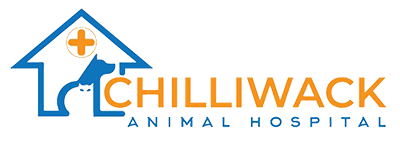Library
-
Carbimazole is a medication used to treat an overactive thyroid (hyperthyroidism) in cats and other animals. Carbimazole lowers thyroid hormone levels. Carbimazole comes in tablet form.
-
Carboxymethylcellulose polymer + propylene glycol gel (brand name Intrasite®) is a water-based gel that helps rehydrate wound tissue and helps keep moisture balance to aid in wound healing. This medication comes in a water-based gel form in application packs.
-
Carnitine is an amino acid nutrient given by mouth and is used to treat dilated cardiomyopathy and other heart diseases in dogs, or to treat hepatic lipidosis (liver disease) in cats. Give as directed by your veterinarian. Side effects are uncommon but may include mild diarrhea or vomiting. Do not use the D form of carnitine, use the L (Levo-) form only. If a negative reaction occurs, please call your veterinary office.
-
Carprofen is a nonsteroidal anti-inflammatory drug (NSAID) used on and off label. It is given by mouth in the form of a tablet to treat pain and inflammation. The most common side effects include vomiting, diarrhea, and decreased appetite. Do not use this medication in pets with bleeding disorders, in pets that are allergic to it or other NSAIDs in the same class, or in pets concurrently using corticosteroids or other NSAIDs. If a negative reaction occurs, call your veterinary office.
-
Carvedilol is a heart medication that may be prescribed off label in dogs, cats, guinea pigs, and turkeys for the treatment of heart conditions including abnormal heart beat frequencies (arrhythmias) and heart failure due to dilated cardiomyopathy (DCM).
-
Cefadroxil is an antibiotic (first-generation cephalosporin) used to treat bacterial infections of the skin, respiratory tract, and urinary tract in cats and dogs. It may be used off label in other cases. Cefadroxil comes in tablet and powder forms that may be compounded into liquid.
-
Cefovecin (brand name: Convenia®) is a cephalosporin antibiotic used off label in cats and dogs for skin infections, periodontal disease, and urinary tract infections. It has also been used as a part of outpatient treatment for parvovirus and other bacterial infections. Cefovecin is given by injection under the skin.
-
Cefpodoxime is a third-generation cephalosporin antibiotic used to treat skin infections in dogs. It is also used off-label in cats and to treat other types of infection. It is given orally in tablet or liquid form. Side effects are uncommon.
-
Ceftiofur crystalline free acid (Excede®) is a third-generation cephalosporin antibiotic used to treat certain bacterial infections in horses, cattle, swine, rabbits, birds, and other animals. There are various formulations of this medication (HCl, sodium, CFA). Ceftiofur crystalline free acid comes in an injectable form. Do not inject into a vein or artery – sudden death may occur.
-
Ceftriaxone is a cephalosporin antibiotic used to treat certain serious susceptible bacterial infections in cats, dogs, rabbits, and other animals. This medication is used off-label in veterinary medicine. Ceftriaxone comes in an injectable form.

